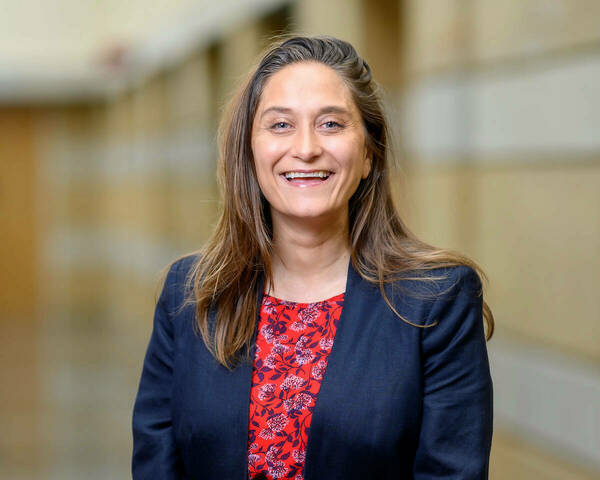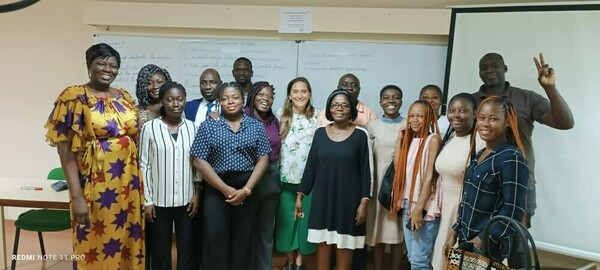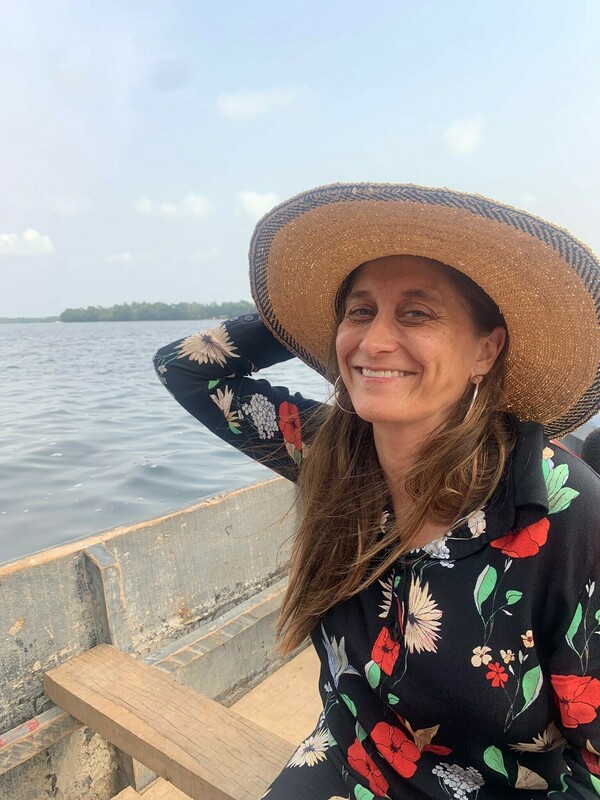
As a Fulbright U.S. Scholar in Côte d’Ivoire during the 2022-23 academic year, associate professor of political science Jaimie Bleck worked on a book about how tea-drinking social clubs, or grinw, in Mali contribute to general trust and democratic resilience.
While there, Bleck also strengthened the University of Notre Dame’s partnership with the Centre for Research and Action for Peace (CERAP), where she taught a master’s-level research methods course and explored the region.
“I was very interested in spending a year living and teaching in West Africa with my family. I targeted Côte d'Ivoire because it borders Mali, the country where I do most of my research, and it shares linguistic and cultural ties,” said Bleck, who specializes in African politics with a focus on democratization, education, participation, and citizenship.
Her book project, tentatively titled “Looking for Democracy in the Wrong Places: Youth Clubs, Social Capital, and Democratic Citizenship in Mali,” is based on research she conducted in 2014-2015 in the West African country that examined the association between voluntary group membership and greater trust and trustworthiness toward society.
The book will include considerable qualitative data from young people about the importance of grinw and their views on key challenges facing Mali today, said Bleck, a concurrent faculty member in the Keough School of Global Affairs, senior research advisor with the Ford Program in Human Development Studies and Solidarity, faculty fellow with the Kellogg Institute for International Studies, and faculty affiliate with Program for Interdisciplinary Educational Research.

During her 18 months in Mali about a decade ago, Bleck found through surveys, focus groups, and trust games that young people who belonged to urban social clubs were consistently more trustworthy than peer nonmembers.
"Trustworthiness is important in facilitating cooperation and collective action in any society,” Bleck said. “It is, perhaps, even more important in places like Mali, where the state is under-performing."
An article she co-authored that shared findings from her research — “Drinking Tea with the Neighbors: Informal Clubs, General Trust, and Trustworthiness in Mali” — was published in August 2023 in the American Political Science Review.
During her Fulbright year, Bleck sought to sit back, slowly soak in a new environment, think about her argument, and write.
Bleck and Notre Dame colleagues were also productive in other ways in the Ivory Coast: Notre Dame International, for instance, helped obtain an agreement with CERAP to facilitate future collaboration.
With Holly Rivers, associate director of the Kellogg Institute, Bleck organized a virtual event about human development with the African School of Economics (ASE), Seeka University, and French-speaking students affiliated with Kellogg. Rivers later visited the Seeka, ASE, and CERAP campuses.

And Ernesto Verdeja, an associate professor of peace studies and global politics in the Kroc Institute for International Peace Studies, traveled to CERAP to give a well-attended presentation about his research focused on disinformation/misinformation.
Political science graduate student Rasheed Ibrahim was also there; he had won an Institute for Scholarship in the Liberal Arts research grant to conduct research with Bleck and the Rev. Arsène Brice Bado, assistant professor of political science and international relations at CERAP.
Together, they organized 15 focus groups that asked young people about their views toward international powers.
After leading a 2023 research seminar in London for NDI, Bleck returned to campus to teach, write, and code the transcribed focus group interviews from Côte d’Ivoire.
The Fulbright year, she said, was amazing. In addition to hosting numerous friends and family — and visiting the tallest basilica in the world — she and her family enjoyed the San Pedro beaches, Tai forest, estuaries north of Assanie, 200-foot-tall kapok trees, multiple birds and monkeys, and food and fashion in Abidjan.
“I was excited to have our two children experience a year in West Africa,” she said, “taking classes in French, and getting more exposure to Bambara, my husband's mother tongue.”


